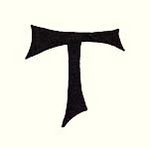 I am learning a lot at Emmaus. Some of the information I can use in my classes. I can certainly use some of this in my Human Sexuality course. I can also use some of it in Psychodiagnosis, Social Cultural issues, Family Therapy, Substance Abuse Counseling and Counseling Skills. Much of what I learned can be incorporated in the Pastoral Counseling courses.
I am learning a lot at Emmaus. Some of the information I can use in my classes. I can certainly use some of this in my Human Sexuality course. I can also use some of it in Psychodiagnosis, Social Cultural issues, Family Therapy, Substance Abuse Counseling and Counseling Skills. Much of what I learned can be incorporated in the Pastoral Counseling courses. However, I am more interested in the issues I have seen surface. Legal issues, trauma and developmental delays permeated many of our days. Training staff with varied backgrounds seems to be a challenge. How do you teach clear boundaries and nurturing? Clearly it can and has been done. However, in psychology I do not speak of “loving” my clients, the staff here does in fact love the guys. That makes boundaries even more important.
Brokenness is also an important concept. Because the assumption is that we are all broken that helps make a more accepting environment. It reminds me of teaching my students to look for continuums because we can always place ourselves on those continuum s. Recognizing our own brokenness keeps us humble and humility connects us to our guys.
Labels are also important. Are our guys prostitutes or hustlers or is that a behavior they participate in? The difference is important. Most of us are far more than just one behavior, thought or feeling. Does “prostitute” best describe a man who is hustling because he has a sick infant who needs food now? Does it describe a man who will not accept food offered to him until he can feed his baby first? I think “desperate parent” would be a better description.
Is a man with limited intellectual abilities but an attractive face and physique best described as a prostitute? Might the real issue be that he is doing what he can to survive because other skills were not developed?
There are so many confounding factors. Paranoia, psychosis, trauma and abuse and drug addiction all complicate the picture. The variables certainly demand that each man be viewed as a unique individual and not as one label. None of this implies that the guys should be protected from the consequences of their behavior, nor is it an excuse for us to enable them. It is reason to care, to try to walk in their shoes and to see them as fellow children of God struggling in this life. The question is, who are we suppose to help, who are we suppose to forgive and how often, who are we called to love?
Brokenness, redemption and transformation are far more important concepts than DSM labels or moral judgments. Walking with them, being with them and modeling alternative relationships is important.
What I was not prepared for was the depths of their faith. However, when you’re alone at night on the streets, when danger can be anywhere, who do you turn to? Whom can you trust?
I am learning a lot. Most of it is about me and what it means to truly walk with someone.













No comments:
Post a Comment